Home > North Carolina > North Carolina Farm to Table > North Carolina’s Small and Minority Farm Program Assists Underrepresented Farmers
North Carolina’s Small and Minority Farm Program Assists Underrepresented Farmers
In partnership with: North Carolina Department of Agriculture & Consumer Services
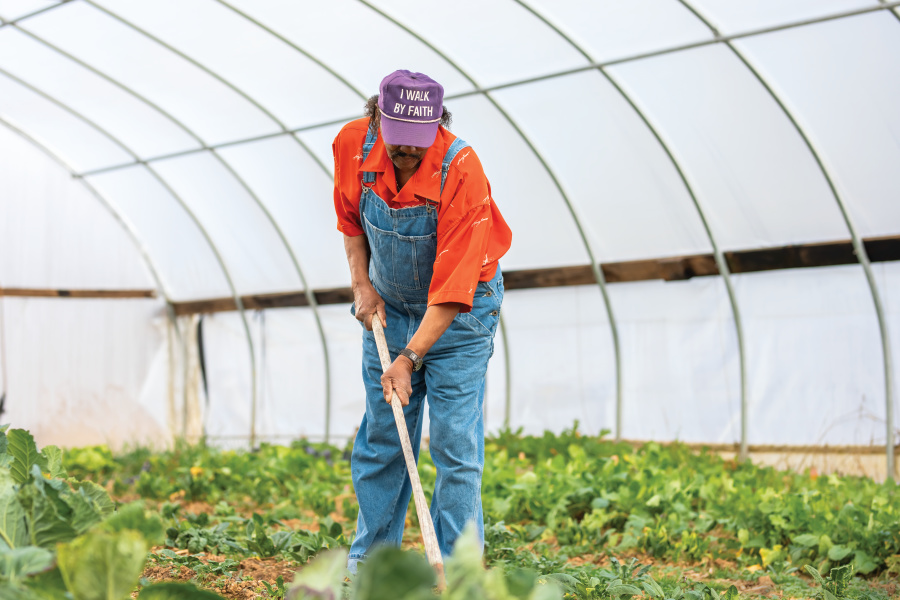
In 2010, Rural Hall farmer Vern Switzer took time away from his farm to head up to Washington, D.C. As part of the Pigford 2 case, he testified before the Supreme Court about the discrimination that Black farmers were facing – and how tens of thousands of them didn’t receive payouts promised to them back in 1997. They won the case. “I just did what needed to be done,” he says.
See more: How North Carolina Organizations Are Reducing Food Waste
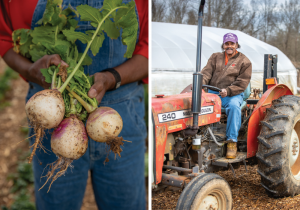
Struggling to Survive
Switzer is one of a small percentage of Black farmers in the country. He’s been farming for 40 years and has 21 acres to his name, growing seasonal squash, tomatoes, watermelon, cucumbers, cactus, okra and moringa, a Southwest Asian plant that he grinds up for capsules to treat a number of ailments. Farming is tough for anyone, but for small farmers and farmers from underserved communities, it can feel like a race with a starting line that begins a mile behind everyone else.
That’s why the North Carolina Department of Agriculture and Consumer Services created the Small and Minority Farm Program in the 1980s. While it was geared mostly toward Black farmers at the time, its outreach today includes female, Asian and Hispanic farmers as well. These farmers reside in every county, from the mountains to the coast.
“The biggest group that we try to work with is those who have limited resources and your nontraditional farmers,” says Archie Hart, who runs the program alongside three colleagues. “Our biggest thing that we try to do is be a program of inclusion. We try to make sure that these farmers know about all local, state and federal programs that they should have access to.”
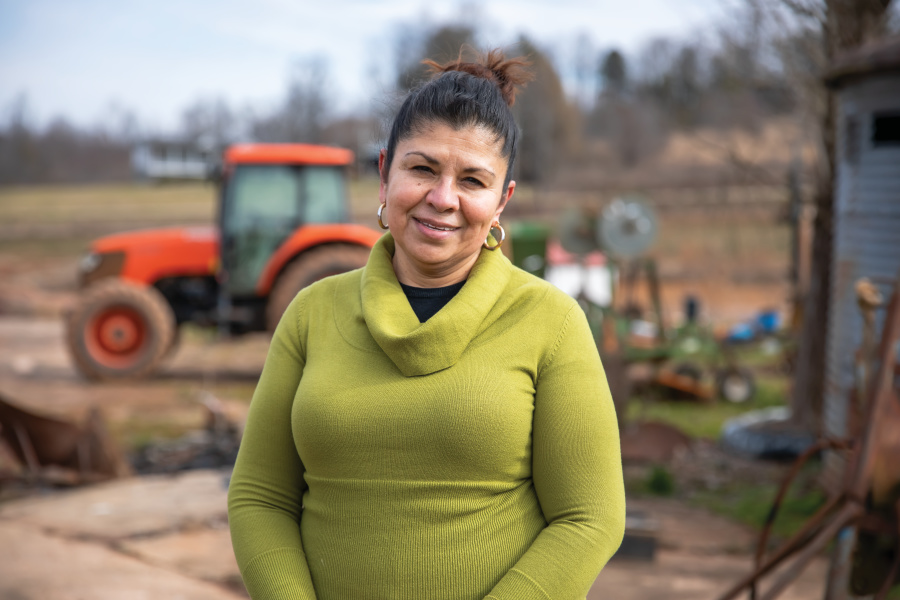
A Guiding Hand
Through the Small and Minority Farm Program, Hart and his team educate farmers about business structure, understanding their land value, tax write-offs and new technologies. This includes site visits by the staff, who are on the road three or four days a week. Each year, the program also hosts a conference with small farmers and landowners, drawing stakeholders from 10 states.
“When we get [the co-op members] the proper business structure and help them, then they become profitable. ”
– Archie Hart, NCDA&CS Small and Minority Farm Program
Switzer first found out about the program when he attended a meeting of Black farmers about 30 years ago. Over the years, he has been introduced to opportunities he wasn’t aware of, and recently he was able to install a high tunnel.
“I love that high tunnel because it just turned my farming totally around,” Switzer says. “I can get in there and I can work, even when it’s pouring down rain. The program has helped me very much because they opened the doors that I couldn’t get through on my own.”
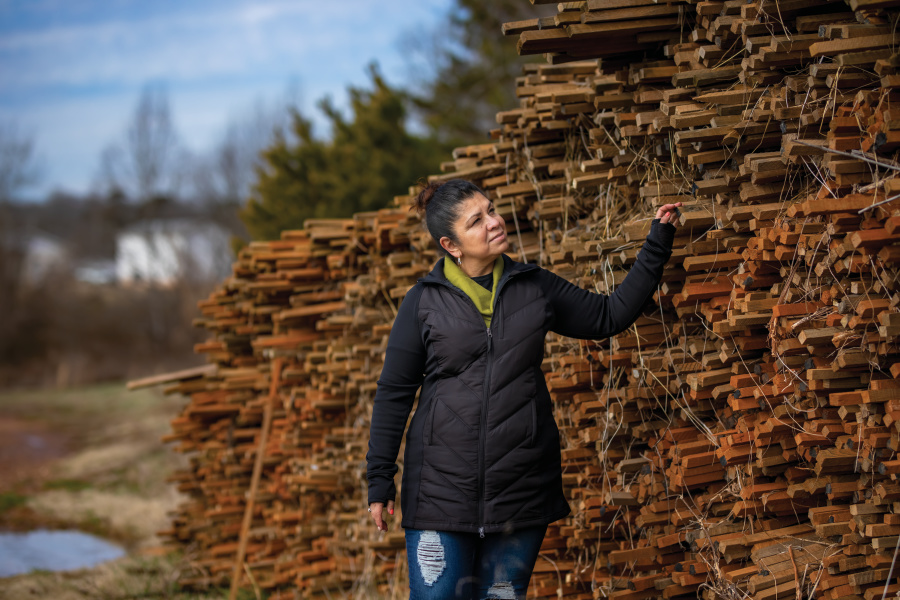
From Migrant to Business Owner
Martha Calderon, who owns Calderon Produce and Calderon Peppers, has 100 acres of farmland in Catawba County. But her success story started way back in 1985, when she was a migrant worker in Florida, Georgia and North Carolina. In the ’90s, Calderon settled with her family in North Carolina, and they officially incorporated in 2009. They grow five varieties of peppers, as well as tomatoes, pickles and squash.
“It’s comforting as a farmer to know that whatever problem you may have, you have contacts,” Calderon says of the program. “If they don’t have the answer, they can connect you to other people.”
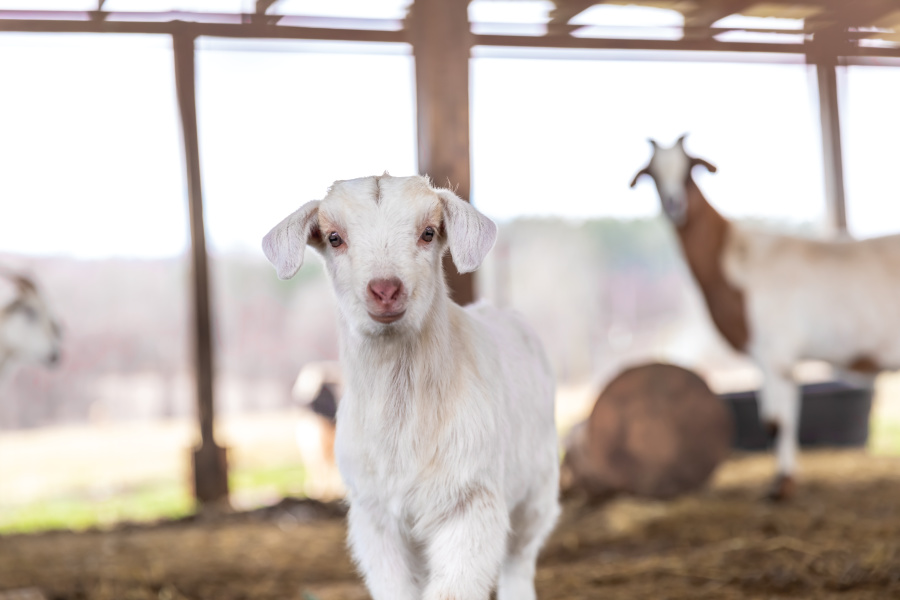
Thanks to the Small and Minority Farm Program, Calderon was able to start a tracing program that enabled her to track her produce from farm to buyer, manage weeds and get a high tunnel. Additionally, being fluent in English and Spanish, she pays it forward by participating in the Hispanic Women Farmers co-op.
“When we get [the co-op members] the proper business structure and help them, then they become profitable,” Hart says. “That’s the good feeling.”



